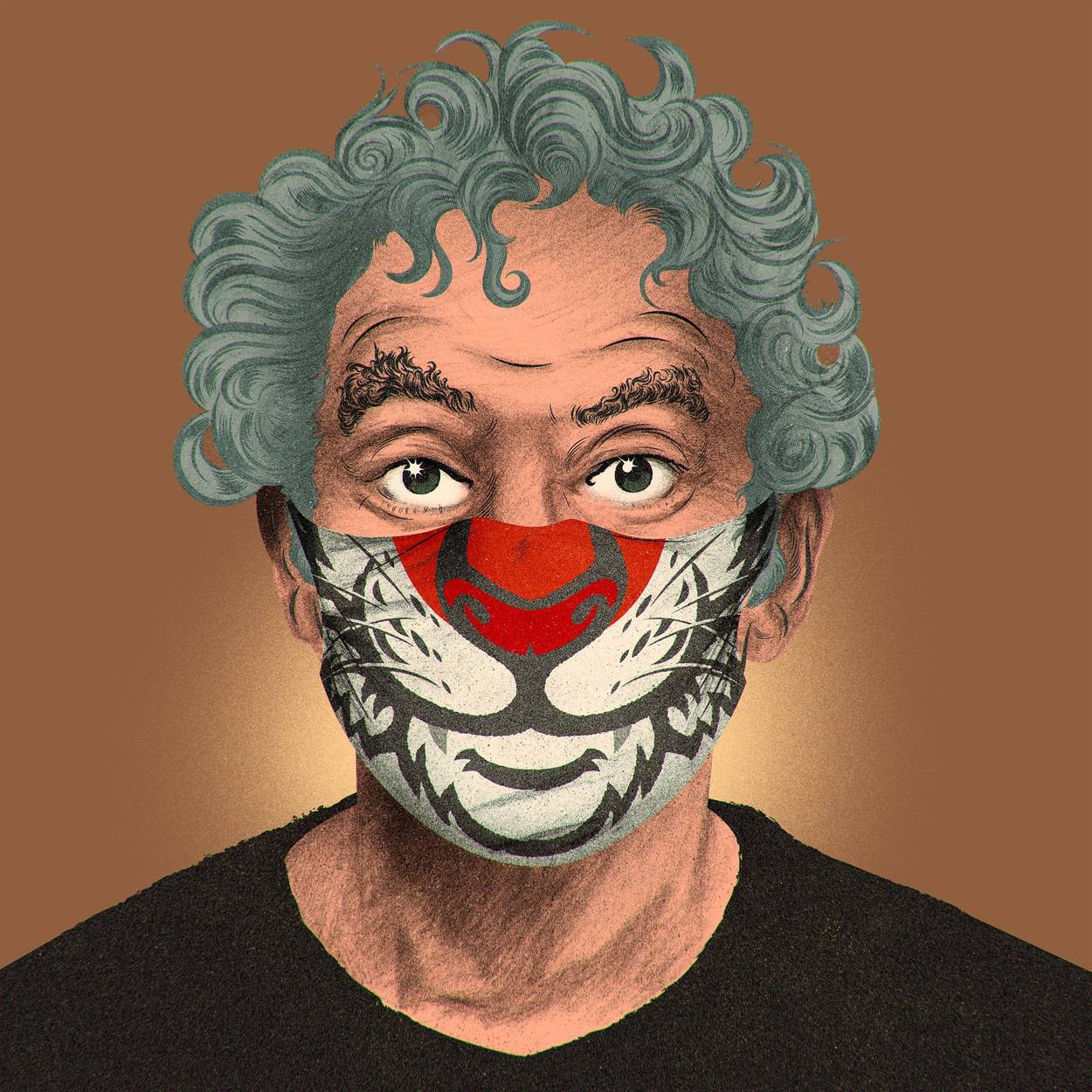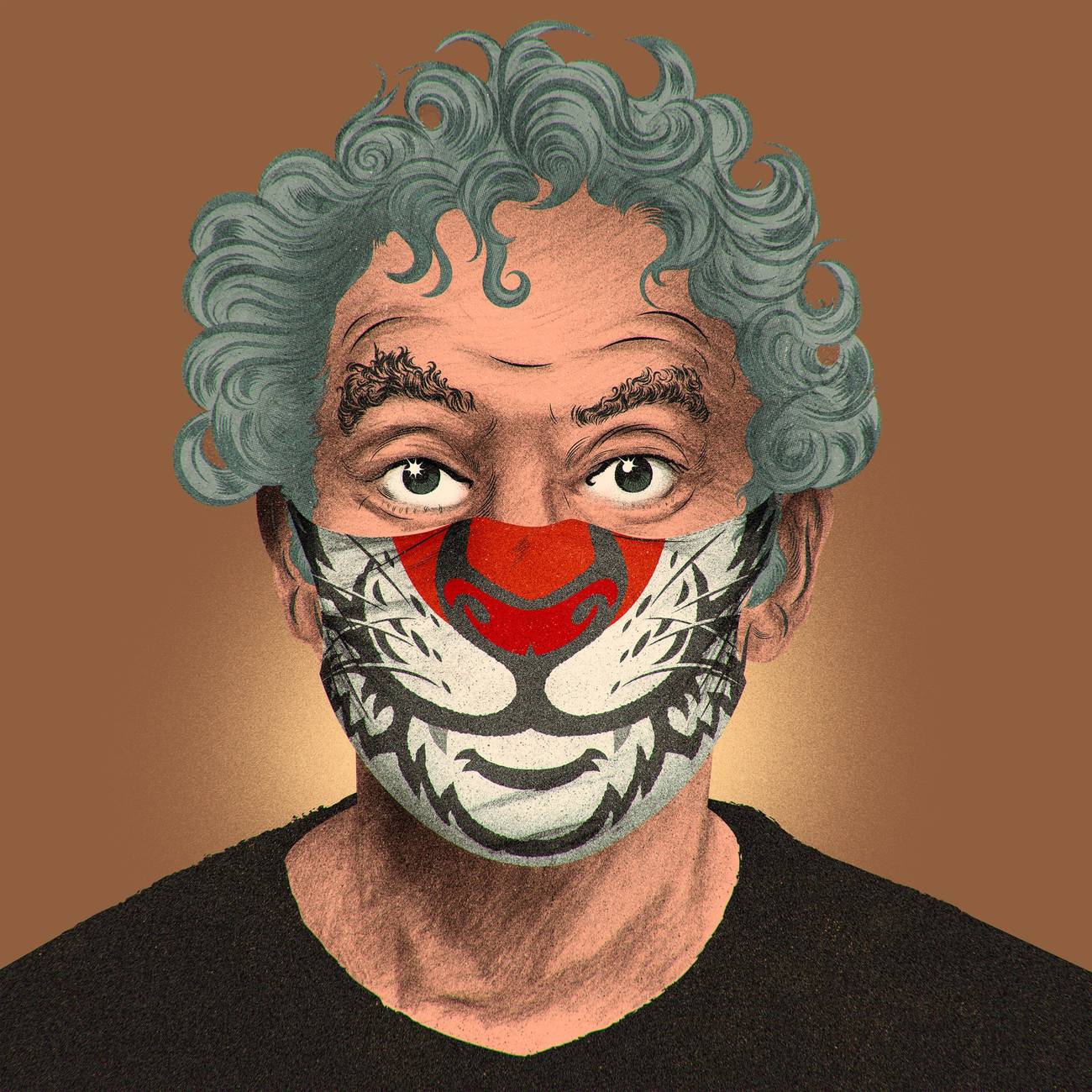The Upgraded Me
In an overwhelming, unpredictable world, our virtual selves offer an appealing existential strategy




In the picture, I’m wearing a mask but I look unconcerned. Even though my face is almost completely concealed, it’s easy to see that I’m smiling, and the fact that my smile is hidden by the mask only makes it more genuine and powerful. It’s the enigmatic smile of someone who has a rich inner life; the enigmatic smile of a dynamic person living in a world where the virus that will wipe the smile off his face has not yet been born. I love that man in the picture. I love him from the depths of my soul, and not only because he’s me. Of course, the fact that he’s me helps. I love the man in that picture because he manages to contain the overwhelming, frightening life around him and, at the same time, keep a healthy, cynical distance from it. I don’t have the slightest doubt that he’s a rare person. I really wish I had a friend like the man in the picture, more than that, I wish I had a brother like him. Never mind brother, I wish he was me.
You know those kinds of pictures? The ones where you look a little smarter, a little more handsome, and a drop more successful than you really are? I’m just crazy about them! Sometimes I can spend a whole hour staring at a picture that shows an upgraded version of myself. The same Etgar, but without buckteeth and anxious eyes, and with a little more sex appeal and a stronger, more manly chin. I know the picture doesn’t look like me at all, and that’s exactly why I love it: because it has sabotaged its original function as a representative of reality and taken on a different function: That picture is no longer a glance into a mirror that shows me who I am, but a look into a different dimension that shows me who I could be—someone a little braver and more charismatic when the light hits him at the right angle.
Those upgraded pictures with the flattering filters that Instagram offers us even though we don’t ask for them are probably one of the most telling signs of the times. They don’t just use advanced technologies that blur our external flaws and strengthen our admirable inner qualities, but they also offer us a new existential strategy: Instead of continuing to be disgusted and depressed by the world out there, we can simply deny it.
Unlike my physical self, which has suffered many blows over the past year because of the pandemic and its side effects, my virtual existence keeps getting upgraded. For every kilogram I gained during the lockdown, I have three pictures in which I look thinner; for every anti-democratic political ruling my government has issued under the pretext of the COVID-19 panic, you can find two clever posts I wrote that make mincemeat out of that injustice; for every argument I had with my wife during the lockdown, I have five pictures of us hugging affectionately. Even the awful July-September weather in Tel Aviv seems less hot and humid on my page. Which makes me think that maybe, now, when things are only getting worse, is the time to do something, to cut off contact once and for all with my physical body and abandon myself totally to the more optimistic and ambitious reflection of it, which is completing six damn good months on social media.
The more polarized, unpredictable, and unstable the world becomes, the more crucial it seems to leave our shaky, battered bodies and relocate to a friendlier, more comfortable place. The time has come for all of us to take our Spotify playlist and what’s left of our ego and immigrate to a place where the sunsets, like ourselves, are always perfect and beautiful.
Translated by Sondra Silverston
Etgar Keret is a Tel Aviv-based filmmaker and fiction writer.